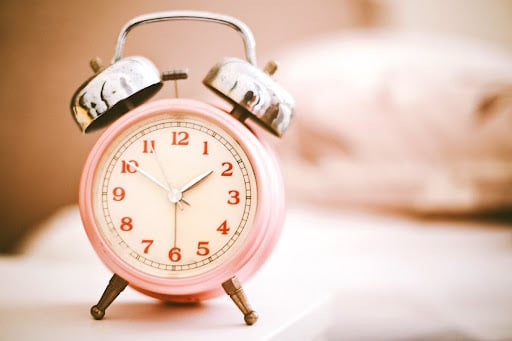Key takeaways
- An estimated 32.8 percent of adults do not get enough sleep, meaning about one-third of the adult population is sleep-deprived.
- Roughly 50–70 million people in the United States experience sleep disorders or disturbances.
- About one in five (or 20 percent) of people in the United States report feeling sleepy during the day.
- Seven to nine hours of sleep are required for a healthy lifestyle.
- Poor-quality sleep can negatively impact your mental health and cognitive function and increase your risk of heart disease and diabetes.
- Long-term poor sleep can reduce your lifespan by 4.7 years for women and 2.4 years for men.
- The most common sleep disorders are insomnia, narcolepsy, restless legs syndrome (RLS), and sleep apnea.
It’s no secret that sleep is essential to our overall well-being. Getting enough sleep allows the brain and body to rest and heal from the stress of everyday life and has a direct impact on our mental and physical health. While long-term sleep loss can have a more profound impact, even minimal sleep can take a toll and negatively impact your productivity, emotions, and creativity.
“Chronic sleep deprivation can contribute to depression and anxiety. Sleep disturbances can exacerbate existing mental health conditions,” says Ryan Sultan, assistant professor of clinical psychiatry at Columbia University and medical director of Integrative Psych. “Additionally, sleep deprivation impairs cognitive functions like concentration, decision-making, and problem-solving, which can lead to increased stress and worsened mental health. Sleep-deprived individuals are more susceptible to emotional reactivity, making them more prone to experiencing negative emotions and irritability.”
Unfortunately, a recent analysis found that almost 30 percent of adults had trouble falling or staying asleep, and more than 27 percent experienced daytime sleepiness in this sample. Worldwide, lack of sleep is considered a public health epidemic—because sleep is fundamental to our health.
Sleep facts and statistics
How much sleep we actually need varies depending on age. Infants require the most sleep, with a recommended 12–16 hours a day (including naps), and adults over age 18 need seven or more hours a day. While a common misconception is that older adults require less sleep, the National Institute on Aging says that older adults still need seven to nine hours of sleep each night.
Unfortunately, 32.8 percent of adults report less sleep than is recommended, with 32.2 percent of adult females reporting inadequate sleep compared to 33.4 percent of males. Studies have also shown that women reported sleeping more than men. However, the differences found were typically less than 30 minutes. Over time, poor sleep can reduce lifespan by 4.7 years for women and 2.4 years for men.
Sleeping positions vary from person to person, and many people move around throughout the night. Preferences include back (supine), stomach (prone), side sleeping on the left, and side sleeping on the right. An interesting study was published in 2022 examining the effects of position on sleep quality. Researchers discovered that subjects who preferred to sleep on their right side (15 percent) reported the highest quality sleep, followed by left-side sleepers (31 percent), and then back sleepers (54%). But sleep position is highly subjective and more research is needed to support this finding.
However, your mattress can impact comfort, so if you’re experiencing discomfort at night, you may want to ensure you have one that’s right for your preferred sleeping position and body type.
Sleep disorder facts
Sleep disorders occur when there are problems with the quality, timing, or amount of sleep that interfere with daytime functioning. Sometimes referred to as sleep-wake disorders, these conditions also result in additional stress and can be linked to medical and emotional problems, including overall mental health. It’s estimated that 50–70 million Americans experience ongoing sleep disorders.
The most common sleep disorders are:
- Insomnia: Affecting roughly 25–30 million people in the United States at any given time, people with insomnia may have trouble falling asleep, staying asleep, or getting quality sleep.
- Narcolepsy: An estimated 200,000 people in the United States have narcolepsy (one in every 2,000 people), which is a neurological disorder where the brain is unable to regulate sleep-wake cycles. People with narcolepsy may fall asleep during the middle of activities and experience muscle weakness.
- Restless legs syndrome (RLS): More than three million cases of RLS occur annually in the United States. This neurological disorder causes uncomfortable sensations in the legs and an urge to move them. It’s considered a sleep disorder because the strongest urges come at night and can make it hard to fall or stay asleep.
- Sleep apnea: Roughly 30 million people in the United States have sleep apnea, but only six million are diagnosed.
Other less common sleep disorders include:
- Circadian rhythm sleep disorders are conditions that disrupt your body’s natural sleep-wake cycle. An example of this is shift-work sleep disorder, where a person’s biological clock is thrown off by their work schedule.
- Parasomnia includes behaviors like sleepwalking, night terrors, sleep talking, and nightmares. Someone with parasomnia may seem alert, and they might even walk, eat, and talk, but their brain is unaware.
Sleep apnea facts
Sleep apnea is when you have trouble moving enough air in and out of your body during sleep. There are two types of sleep apnea: obstructive and central. Obstructive sleep apnea occurs when your upper airway becomes blocked, preventing airflow. Central sleep apnea is less common and occurs when signals from the brain that stimulate breathing are interrupted. Central sleep apnea has been associated with heart disorders, strokes, and opioid pain medication use.
Approximately 15 percent of people in the United States experience sleep apnea. Obesity, being assigned male at birth, age, and family history are some of the major risk factors for sleep apnea. If you’re excessively sleepy during the day or someone tells you that you snore or gasp during sleep, you may be experiencing sleep apnea.
Sleep deprivation facts
Sleep deprivation occurs when you don’t get enough sleep. Causes of sleep deficiency include poor quality of sleep and sleeping during the day. You may experience sleep deprivation as a result of sleep disorders like sleep apnea, medication side effects, and the use of caffeine or other stimulants. Sleep deprivation can also occur when people intentionally limit the amount they sleep due to personal or work obligations.
Additionally, an estimated one in five adults experiences daytime sleepiness, which can be related to sleep deprivation and defined as difficulty maintaining desired wakefulness.
Sleep health facts
Sleep is vital to our overall health and is linked to many health issues, including memory, concentration, and mental health.
Other health conditions associated with poor sleep include:
- High blood pressure (risk is estimated at five to 20 percent).
- Type 2 diabetes (risk is about 57 percent).
- Increased risk of heart attack (myocardial infarction) and coronary heart disease (about 41–55 percent).
- Imbalance in the hormones that regulate appetite due to blood sugar levels, potentially leading to weight gain and obesity.
“Sleep has a definite impact on mental health and other medical conditions, including heart disease, kidney disease, and diabetes. The cardiovascular system is negatively impacted in people with sleep apnea due to fluctuating oxygen levels.” — Rakesh V. Alva, a sleep doctor in Greensboro, North Carolina
Practicing good sleep hygiene is just one important component of helping you sleep better. A recent study showed that 76.5 percent of people who reported poor sleep hygiene practices experienced sleep problems like insomnia and daytime sleepiness. An increased incidence of depression was also noted for study participants with poor sleep hygiene.
“If you’re looking to improve your mental health, prioritizing sleep should be a top priority for you. Establishing a sleep routine, reducing stimulants like caffeine and screen time, and creating a conducive sleep environment can all contribute to better sleep and improved mental well-being. Remember, the mind and body are closely connected, and taking care of your physical health can have a positive impact on your mental health as well,” says Stephanie Dixon, a health care provider for Cone Health in Greensboro, North Carolina.
But it’s important to talk to your doctor if you’re having trouble falling or staying asleep to ensure you don’t have an underlying issue like sleep apnea.
“Ultimately, getting adequate rest is essential for maintaining a healthy lifestyle. It allows your body to recover, repair, and function optimally, supporting overall well-being,” Dixon says.
Last updated or reviewed on June 19, 2024


